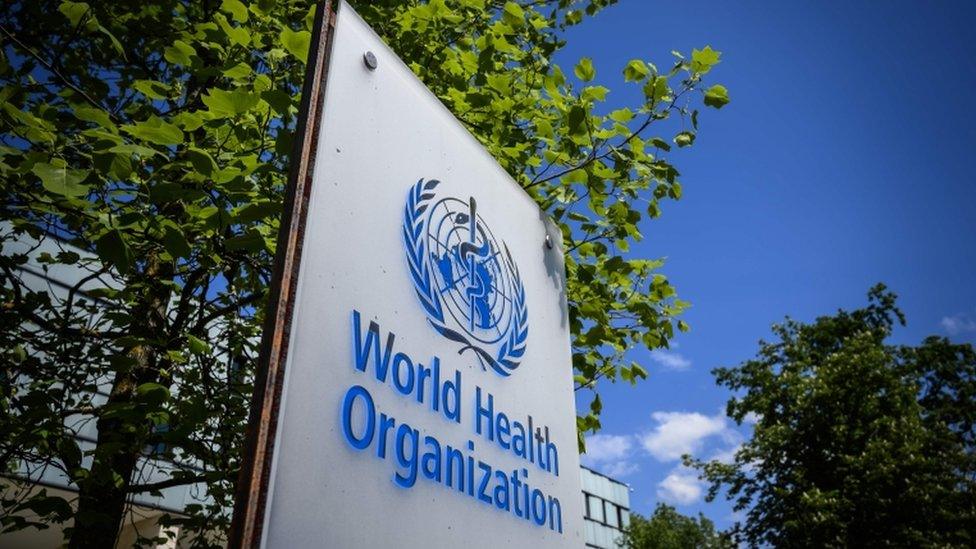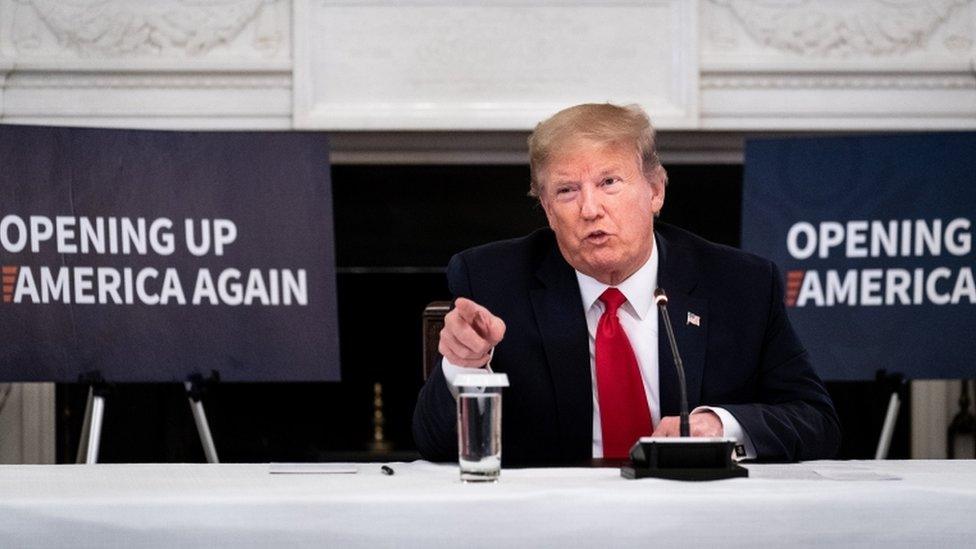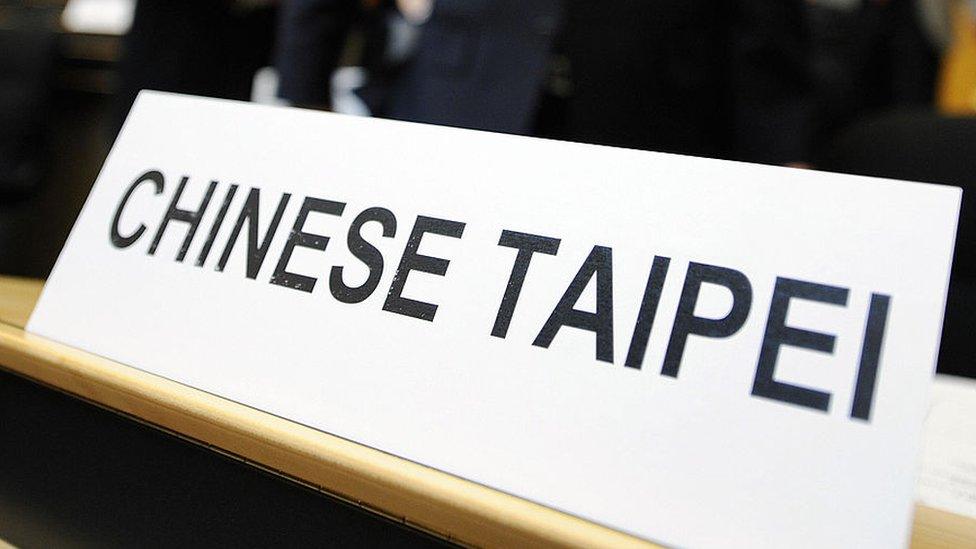Coronavirus: Backlash after Trump signals US exit from WHO
- Published

The US has been the largest single contributor to the WHO
President Donald Trump has been criticised at home and abroad after announcing he is ending US ties with the World Health Organization (WHO).
The EU urged him to reconsider the decision, while Germany's health minister called it a "disappointing setback for international health".
The head of the US Senate's health committee, a Republican like Mr Trump, said now was not the time to leave.
Mr Trump said the WHO had failed to hold China to account over coronavirus.
The WHO, a UN agency that helps countries promote healthcare and tackle outbreaks of disease, has faced regular criticism from the US president over its handling of the outbreak.
He suspended US funding to the WHO last month and on Friday permanently halted the payment, which last year stood at more than $400m (£324m; €360m), the largest single contribution at around 15% of its total budget.
What has the response been to the US move?
European Commission President Ursula von der Leyen and top EU diplomat, Josep Borrell, said in a statement: "In the face of this global threat, now is the time for enhanced co-operation and common solutions. Actions that weaken international results must be avoided.
"We urge the US to reconsider its announced decision."
German Health Minister Jens Spahn described the setback as "disappointing" although he accepted the WHO "needs reform".
"The EU must take a leading role and engage more financially," he said.

Mr Trump says the WHO has been a "puppet of China"
A spokesperson for the UK said: "Coronavirus is a global challenge and the World Health Organization has an important role to play in leading the international health response. We have no plans to withdraw our funding."
The chair of the US Senate Health Committee, Lamar Alexander, said the move could hamper the discovery of a vaccine against Covid-19 and urged a reversal of the decision in the "strongest terms possible".
"Certainly there needs to be a good, hard look at mistakes the World Health Organization might have made in connection with coronavirus, but the time to do that is after the crisis has been dealt with, not in the middle of it," he said.
Ex-presidential candidate and US Senator Elizabeth Warren tweeted: "President Trump's decision to leave the @WHO during a global pandemic alienates our allies, undermines our global leadership, and threatens the health of the American people."
Anders Nordstrom, a former WHO acting director general, said he was "deeply concerned" the move would increase political tension at a time when "we need to have global solidarity".
South African Health Minister Zweli Mkhize called the decision "unfortunate".
WHO member states agreed on 19 May to set up an independent inquiry into the global response to the pandemic.
What was behind Trump's decision?
Speaking at the White House, Mr Trump said: "Because they have failed to make the requested and greatly needed reforms, we will be today terminating our relationship with the World Health Organization and redirecting those funds to other worldwide and deserving urgent global public health needs."
It is not clear when any US withdrawal might take place. A 1948 agreement between the US and WHO allows for one year's notice before pulling out.
Mr Trump has accused China of trying to cover up the outbreak of coronavirus, which occurred in the city of Wuhan late last year.
He also says that "China has total control over the World Health Organization".
The president accused China of pressurising the WHO to "mislead the world" about the virus, without elaborating.
Mr Trump has repeatedly criticised China's early handling of the outbreak
"The world is now suffering as a result of the malfeasance of the Chinese government," he said.
The US will redirect its funds for the WHO to other health groups.
More than 102,000 people in the US have lost their lives to Covid-19 - by far the biggest death toll in the world.
Opponents say Mr Trump is trying to deflect criticism of his handling of the pandemic ahead of his re-election bid this year.
Meanwhile, Chinese Foreign Ministry spokesman Zhao Lijian has said that Mr Trump is trying to mislead the public, smear China and "shift the blame for [the US's] own incompetent response".

What is the WHO - and who funds it?
Founded in 1948 and based in Geneva, Switzerland, it is the UN agency responsible for global public health
Has 194 member states, and aims to "promote health, keep the world safe and serve the vulnerable"
Involved in vaccination campaigns, health emergencies and supporting countries in primary care
Funded by a combination of members' fees based on wealth and population and voluntary contributions


A SIMPLE GUIDE: How do I protect myself?
HOPE AND LOSS: Your coronavirus stories
VIDEO: The 20-second hand wash

- Published24 March 2020
- Published17 May 2020
